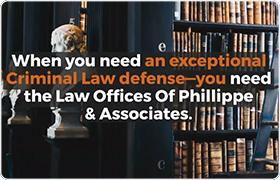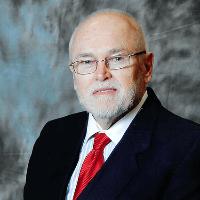Port Isabel Misdemeanor Lawyer, Texas, page 5
Sponsored Law Firm
-
 x
x

Click For More Info:
-
The Law Office Christopher Phillippe
104 North Express Way Brownsville, TX 78521» view mapCriminal Defense Law Helping Those Facing Difficult Times
We are confident in our ability to resolve difficult legal issues, and we will use our years of experience to represent your best interests.
800-659-6781
Not enough matches for Port Isabel Misdemeanor lawyer.
Below are all Port Isabel Criminal lawyers.
Carlos J. Garza
Personal Injury, Criminal, , Family Law, Commercial Real Estate
Status: In Good Standing *Status is reviewed annually. For latest information visit here Licensed: 31 Years
Carlos Noel Monarrez
Personal Injury, Criminal, Family Law, Immigration
Status: In Good Standing *Status is reviewed annually. For latest information visit here Licensed: 17 Years
Carlos Raul Masso
Personal Injury, Consumer Bankruptcy, Administrative Law, Criminal, Family Law
Status: In Good Standing *Status is reviewed annually. For latest information visit here Licensed: 26 Years
Carol Lynn Sanchez
Criminal, Family Law, Social Security, Immigration
Status: In Good Standing *Status is reviewed annually. For latest information visit here Licensed: 13 Years
Caroline Speekman Heindel
Landlord-Tenant, Criminal
Status: In Good Standing *Status is reviewed annually. For latest information visit here Licensed: 28 Years
Cerise Reyna De Garduno
Personal Injury, Criminal, Family Law, Immigration, Litigation
Status: In Good Standing *Status is reviewed annually. For latest information visit here Licensed: 13 Years
Cesar De Leon
Business & Trade, Criminal, Immigration
Status: In Good Standing *Status is reviewed annually. For latest information visit here Licensed: 12 Years
Cesar A. Amador
Personal Injury, Criminal
Status: In Good Standing *Status is reviewed annually. For latest information visit here Licensed: 41 Years
Charles Lewis
Criminal
Status: In Good Standing *Status is reviewed annually. For latest information visit here Licensed: 52 Years
Charles E. Mattingly
Personal Injury, Credit & Debt, Criminal, Family Law, Wills
Status: In Good Standing *Status is reviewed annually. For latest information visit here Licensed: 31 Years
 Christopher Phillippe Brownsville, TX
Christopher Phillippe Brownsville, TX Practice AreasExpertise
Practice AreasExpertise